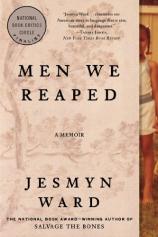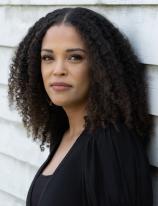Reading Group Guide
Discussion Questions
Men We Reaped: A Memoir

1. The title Men We Reaped comes from a Harriet Tubman quote, which opens the book. Revisit the quote and discuss its relevance to Ward’s memoir. How does the title convey the themes of loss, inequality, and community in the book?
2. The memoir chronicles five deaths: Roger, Demond, C. J., Ronald, and Joshua. What do these five tragedies have in common? What are the differences among them? What do these deaths say about the experience of black masculinity today?
3. Consider the intricate structure of MEN WE REAPED, which narrates the men’s deaths in reverse order, from 2004 to 2000, and also relates the story of the author’s upbringing. What happens when “the past and the future meet” in Ward’s final chapter (213)? What is the effect of delaying this initial experience of loss until the end of the memoir?
4. Discuss the setting of DeLisle, Mississippi, originally named “Wolf Town” by its early settlers. What wolf-like wildness persists in DeLisle, even today? How does Ward bring the sights, sounds, smells, and despairs of DeLisle to life?
5. After Roger’s death, Ward’s ex-boyfriend Brandon declared, “They picking us off, one by one” (38). Does Ward ever “figure out who the they that wrote our story might be” (38)? Who is responsible for the tragedies of this community?
6. Discuss the gender roles that men and women play in Ward’s family and community. What are some of the freedoms --- and risks --- of being a black man in Mississippi? What are the unique challenges of being a girl, a woman, a wife, and a mother in this community? How do the men and women in Ward’s life fight and succumb to these gender roles?
7. “Here, family has always been a mutable concept” (110). Consider the flexible bonds of kinship in DeLisle. What makes each of the men memorialized in MEN WE REAPED --- Joshua, Ronald, C. J., Demond, and Roger --- “family,” in Ward’s eyes?
8. “My entire community suffered from a lack of trust,” Ward writes (169). Why do members of the community distrust society at large, as well as one another? What are the consequences of this epidemic of distrust in Ward’s community?
9. Just before the family moved from Gulfport to DeLisle, Joshua discovered a hidden cellar in the woods behind their house. Why did the cellar scare Ward as a child? What fears and uncertainties did the cellar symbolize?
10. Discuss the influence of Ward’s father upon the author and her siblings. How was their father a positive as well as negative role model for his children?
11. Ward asks, “How could I know then that this would be my life: yearning to leave the South and doing so again and again, but perpetually called back to home by a love so thick it choked me?” (195) Consider the hold that the South has on Ward during her adult life. Why has she left and returned home, again and again?
12. Although Ward confronted overt racism at school every day, “Joshua faced a different kind of racism, a systemic kind” (208). Compare these two siblings’ experiences of discrimination during their school years. What survival mechanisms did each child develop in order to ward off these types of racism?
13. Revisit the story of Joshua’s death in 2000. What regrets does Ward still have about her final conversations with her brother? What injustices followed Joshua’s death, and how did Ward’s family and community cope with their grief and anger?
14. Ward writes, “I thought being unwanted and abandoned and persecuted was the legacy of a poor southern Black woman. But as an adult, I see my mother’s legacy anew” (250). Compare both ways of evaluating Ward’s mother’s life: as a series of burdens, and as a series of victories over those burdens. How has Ward made peace with her mother’s legacy? What maternal lessons does Ward hope to pass along to her own young daughter?
15. Ruminating on what Joshua’s life is worth, Ward writes, “It is worth more than I can say. And there’s my dilemma, because all I can do in the end is say” (243). Discuss the conflict between silence and speech in Men We Reaped. When have words failed Ward? In what ways are words inadequate in measuring her losses? How might writing this memoir have helped Ward combat feelings of inadequacy in the face of loss?
Men We Reaped: A Memoir
- Publication Date: September 16, 2014
- Genres: Nonfiction
- Paperback: 272 pages
- Publisher: Bloomsbury USA
- ISBN-10: 1608197654
- ISBN-13: 9781608197651








